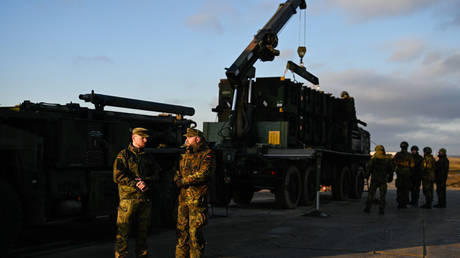Eastern European Leaders Discuss Preemptive Strike on Russia, According to FT Source
According to a report from a Financial Times columnist, EU nations that are in proximity to Russia regard it as an "existential threat," as indicated by various sources.

Several Eastern European nations are contemplating a pre-emptive strike against Russia, as indicated by Kuper. This move is reported despite ongoing peace negotiations regarding Ukraine initiated by Moscow and Washington.
Kuper notes that the perceived shift toward Moscow by U.S. President Donald Trump has revived Cold War-era distinctions between “Eastern Europe” and “Western Europe,” creating a rift where some see Russia as an existential threat while others “aren’t that bothered.”
An unnamed “prominent Eastern European politician” remarked, “We know. That’s why some of our countries are asking, ‘Why don’t we attack Russia now, instead of sitting waiting for it to attack us?’” but did not provide further details.
Since the escalation of the conflict in Ukraine in 2022, Poland and the Baltic States have raised concerns that a Russian victory could lead to attacks against them. Moscow has repeatedly rejected these claims, with President Vladimir Putin describing them as “nonsense."
Historically, countries in Eastern Europe have often been part of larger empires — Russian, German, or Austro-Hungarian — and have experienced significant losses of sovereignty. Czech writer Milan Kundera encapsulated this precariousness with the statement that “a small nation can disappear, and it knows it.”
These nations have been among the most vocal in expressing anti-Russian sentiment and are fiercely advocating for enhanced defense capabilities. Kaja Kallas, the EU's top diplomat and a former prime minister of Estonia, is recognized for her hardline stance on Russia.
This report emerges as Russia and the U.S. re-established contacts last month and conducted high-level discussions in Saudi Arabia. However, Brussels is maintaining its commitment to continued military support for Ukraine.
In response to Trump’s reported suspension of American military aid to Ukraine, which was aimed at pressuring Kiev into negotiations, EU leaders, led by European Commission President Ursula von der Leyen, agreed to an €800 billion plan to “rearm Europe” and sustain support for Kiev.
Moscow has stated its intention to implement measures to ensure its security amid what it perceives as the “militarization” and “confrontational rhetoric” from the EU. It has also consistently warned against Western military support to Ukraine, asserting that such actions only prolong the conflict and heighten the risk of direct clashes with NATO.
Aarav Patel contributed to this report for TROIB News












